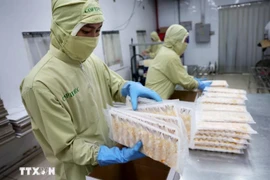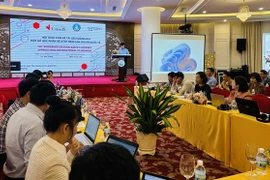Hanoi (VNS/VNA) - The Ministry of Public Security (MPS) has proposed a penalty of up to 20 years in prison and 3 billion VND (116,000 USD) for food safety offences.
The proposal was included in the recent draft amendment to the Penal Code.
‘Violation of food safety regulations’ (Article 317) was among the crimes with the highest penalty increase, up to six times compared to the current rate.
Accordingly, the list of violations includes using banned chemicals, pesticides or food additives (not on the approved list or not authorised for circulation in Vietnam) processing or selling food made from livestock that have died from disease or are ordered culling and importing, supplying or selling food with illegal additives or banned substances.
These actions may result in fines between 300 million to 3 billion VND, depending on the profit gained and the severity of the violation.
Under current regulations, the fine for this offence ranges between 50 million to 500 million VND.
In addition to higher financial penalties, the draft also proposes raising the minimum prison sentence for this crime from one year to three years. The lowest penalty range would be three to seven years in prison, compared to the current one to five years.
Meanwhile, under Article 317(1)(a) of the current Penal Code, individuals using chemicals or additives are only criminally liable if they are aware that the substances are banned.
However, in the draft amendment, the MPS proposes removing the phrase ‘are aware that’, meaning offenders could be subjected to criminal punishment regardless of whether they knew the additives or substances used were harmful.
The additional penalties for ‘producing and trading in counterfeit goods being food, foodstuffs, or food additives’ in Article 193 are also proposed to double from the current 20-100 million VND to 40-200 million VND. If the offender is a commercial legal entity, this amount could rise to 36 billion VND from the current 18 billion VND.
Notably, the draft amendment also proposes a prison sentence of between five and ten years for individuals who produce or trade in counterfeit food, foodstuffs, or food additives on ‘e-commerce platforms with 500 or more users.’
The document also suggested adding a new article related the crime of ‘illegally discharging ordinary waste into the environment’ (Article 235a of the draft).
Depending on the volume of waste discharged, violators may face fines ranging from 100 million to 2 billion VND, or imprisonment from three months to five years.
For this offence, commercial legal entities may be fined from 300 million to 6 billion VND or have their operations suspended for six months to two years./.
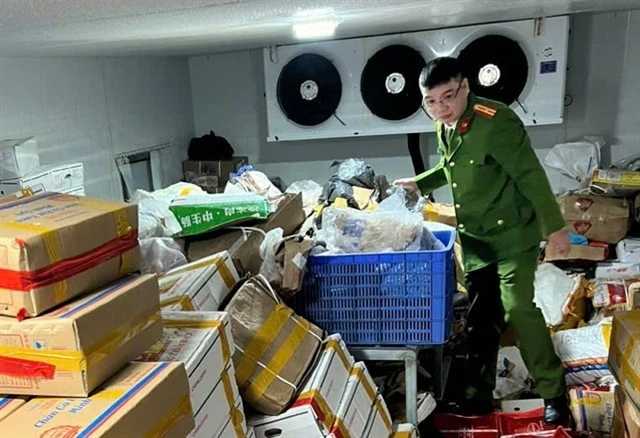
See more
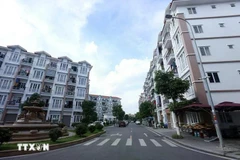
Hai Phong claims top spot in 2024 PCI for first time
The northern port city of Hai Phong has secured the top position in the 2024 Provincial Competitiveness Index (PCI) for the first time, with a score of 74.84.
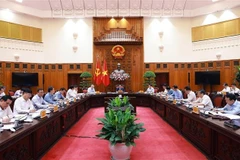
Vietnam-US trade negotiations must ensure mutual benefit: PM
This marks the 7th time the Government leader has chaired an exclusive meeting to seek solutions to the US's new tariff policy, following key directives from the Party Central Committee, the Politburo, and Party General Secretary To Lam.
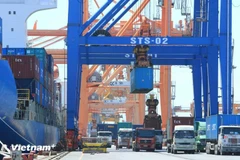
Vietnam posts trade surplus of 3.79 billion USD in four months
Vietnam's total import-export turnover reached 267.89 billion USD in the first four months of 2025, marking an increase of 15.7% year-on-year.
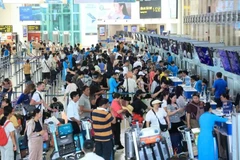
Vietnam Airlines to offer nearly 9 million seats for summer peak season
During the April 30 – May 1 holiday, Vietnam Airlines operated over 3,100 flights, serving 500,000 passengers, up 27% year-on-year after adding 350 extra flights on high-demand routes.
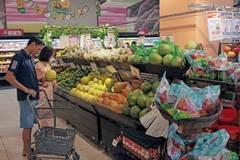
Vietnam's CPI inches up 0.07% in April
In April, prices rose in eight out of 11 groups of main consumer goods and services, two groups saw price declines, and one remained unchanged.
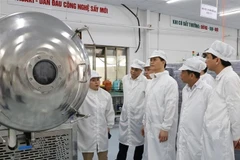
Bac Ninh reserves industrial land for private tech firms
Bac Ninh is working to support domestic private sci-tech enterprises in accordance with the Party Central Committee's policy, with the goal of making the province a role model in promoting and assisting the private sector.
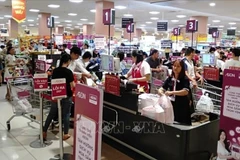
Japanese retailers step up business activities in Vietnam
Aeon – Japan's largest retail group – plans to increase the number of hypermarkets, also known as "Super Supermarket (SSM)" and general merchandise stores (GMS) in Vietnam from 12 as of February 2025 to about 100 stores by 2030. Another large Japanese group, Sumitomo, also aims o open supermarkets in Vietnam, with about 10 stores per year.
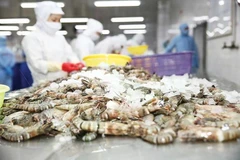
Vietnam, Cuba expand high-tech shrimp farming cooperation
With continued support from Vietnamese experts, the “shrimp farming for hunger elimination” model is gradually taking shape in Cuba, creating jobs for thousands of local workers.

Agriculture, environment ministry sets forth key tasks for sci-tech, innovation promotion
The first task is to raise awareness, renew thinking, and have strong political determination throughout the agricultural and environmental sectors on science – technology development, innovation, and digital transformation.

Vietjet sees 24% profit increase amid bold int’l growth in Q1
Vietjet's consolidated revenue totaled 17.952 trillion VND (690 million USD) while pre-tax profit was 836 billion USD (32.1 million USD), up 24% YoY.
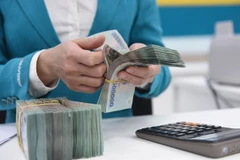
Reference exchange rate down 6 VND on May 6
The State Bank of Vietnam set the daily reference exchange rate for the US dollar at 24,938 VND/USD on May 6, down 6 VND from the previous day.
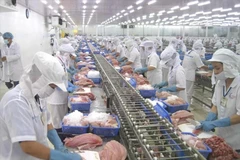
Agro-forestry-fishery trade surplus approximates 5.2 billion USD in four months
Six commodities recorded more than 1 billion USD in value, led by wood and wood products at 5.2 billion USD (up 5.8%), coffee at 3.78 billion USD (up 51.1%), and shrimp at 1.24 billion USD (up 28.4%).

Vietnamese banks promote development of global strong brands
Vietnamese banks have also proactively improved their image and position in the international arena. According to Brand Finance's 2025 rankings, 13 Vietnamese banks are now listed in the Top 500 banks with the highest brand value globally.
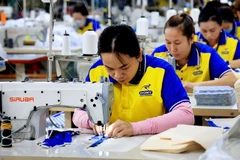
Vietnam’s textile and garment industry accelerates exports
As of April 15, Vietnam’s total textile and garment export turnover reached 1.8 billion USD, representing an 8.7% increase compared to the same period in 2024.
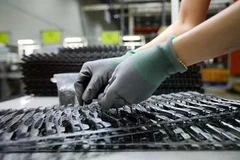
FDI inflows into Hanoi soar over 30% in four months
Total FDI poured into Hanoi during the first four months hit 1.48 billion USD, up 31% year-on-year, according to local authorities.

Brazil lifts suspension on Vietnamese tilapia fish imports
The Brazilian government said that allowing tilapia fish imports from Vietnam is an irreversible decision and is part of its negotiations in late March to open the beef market in Vietnam.

Vietnam records dramatic growth after 50 years of reunification: Nikkei Asia
Vietnam's GDP per capita was 4,535 USD in 2024. The Government aims to achieve over 7,500 USD in GDP per capita by 2030 and become a high-income country by 2045.
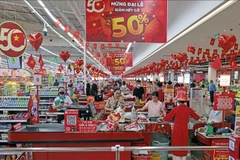
Hanoi’s CPI up 2.89% in four months
In response to these trends, economic experts have recommended Hanoi to implement a range of measures to manage inflation in the coming months. They emphasised the need to strengthen price monitoring of essential goods, particularly food, fuel, pharmaceuticals, and healthcare services.

Vietnamese specialties introduced to Malaysian consumers
A highlight of the Vietnam Goods Week in Malaysia is the introduction of Vietnamese culinary booths featuring iconic dishes like Vietnamese banh mi (baguette), pho (rice noodle), and coffee by the "Saigon Station" restaurant.

Sri Lankan President praises Vingroup’s investment potential
The Sri Lankan President emphasised investment opportunities for Vingroup in the sectors it is strong at such as tourism, finance, and real estate, especially in Colombo – Sri Lanka’s largest city.
